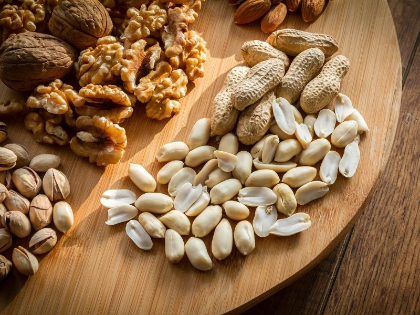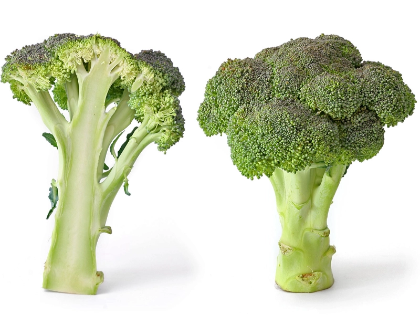Pineapple and Heart Health: Supporting Cardiovascular Wellness
1. The Nutritional Profile of Pineapple Pineapple is a tropical fruit that is not only delicious but also packed with essential nutrients that contribute to overall health. It is rich in vitamins, particularly Vitamin C, and minerals such as manganese, which play crucial roles in various bodily functions. Additionally, pineapple contains dietary fiber, which is beneficial for digestive health. The unique combination of nutrients in pineapple makes it a valuable addition to a heart-healthy diet, supporting cardiovascular wellness in multiple ways.
2. Antioxidant Properties One of the key factors contributing to heart health is the presence of antioxidants in the diet. Pineapple is abundant in antioxidants, including flavonoids and phenolic acids. These compounds help combat oxidative stress, which can damage cells and lead to chronic diseases, including heart disease. By neutralizing free radicals in the body, the antioxidants found in pineapple can help protect the cardiovascular system and reduce the risk of heart-related issues.

 5. Cholesterol Management High cholesterol levels are a well-known risk factor for heart disease. Pineapple may play a role in managing cholesterol levels due to its fiber content. Dietary fiber helps reduce the absorption of cholesterol in the bloodstream, promoting healthier cholesterol levels. By including pineapple in a balanced diet, individuals can support their efforts to maintain optimal cholesterol levels and reduce the risk of cardiovascular disease.
6. Enhancing Circulation Good circulation is essential for heart health, as it ensures that oxygen and nutrients are delivered efficiently throughout the body. Pineapple contains several compounds that may enhance circulation, including bromelain, which can help improve blood flow and reduce blood clot formation. Improved circulation can lower the risk of heart-related issues and contribute to overall cardiovascular wellness.
5. Cholesterol Management High cholesterol levels are a well-known risk factor for heart disease. Pineapple may play a role in managing cholesterol levels due to its fiber content. Dietary fiber helps reduce the absorption of cholesterol in the bloodstream, promoting healthier cholesterol levels. By including pineapple in a balanced diet, individuals can support their efforts to maintain optimal cholesterol levels and reduce the risk of cardiovascular disease.
6. Enhancing Circulation Good circulation is essential for heart health, as it ensures that oxygen and nutrients are delivered efficiently throughout the body. Pineapple contains several compounds that may enhance circulation, including bromelain, which can help improve blood flow and reduce blood clot formation. Improved circulation can lower the risk of heart-related issues and contribute to overall cardiovascular wellness.
 7. Weight Management Maintaining a healthy weight is vital for heart health, and pineapple can be a helpful ally in this regard. It is low in calories and high in water content, making it a satisfying snack that can help curb hunger without adding excessive calories. The dietary fiber in pineapple also promotes feelings of fullness, which can aid in weight management. By incorporating pineapple into a balanced diet, individuals can support their weight loss or maintenance goals, ultimately benefiting their heart health.
8. Versatile Culinary Uses Pineapple is a versatile fruit that can be enjoyed in various ways. It can be eaten fresh, grilled, blended into smoothies, or added to salads and salsas. Its natural sweetness makes it an excellent alternative to sugary snacks and desserts. By incorporating pineapple into meals and snacks, individuals can easily enhance their diet with heart-healthy nutrients while enjoying a delicious flavor.
7. Weight Management Maintaining a healthy weight is vital for heart health, and pineapple can be a helpful ally in this regard. It is low in calories and high in water content, making it a satisfying snack that can help curb hunger without adding excessive calories. The dietary fiber in pineapple also promotes feelings of fullness, which can aid in weight management. By incorporating pineapple into a balanced diet, individuals can support their weight loss or maintenance goals, ultimately benefiting their heart health.
8. Versatile Culinary Uses Pineapple is a versatile fruit that can be enjoyed in various ways. It can be eaten fresh, grilled, blended into smoothies, or added to salads and salsas. Its natural sweetness makes it an excellent alternative to sugary snacks and desserts. By incorporating pineapple into meals and snacks, individuals can easily enhance their diet with heart-healthy nutrients while enjoying a delicious flavor.
 9. Advice on Consumption Pineapple must be included into a balanced diet if one wants to enjoy its cardiovascular advantages. Whether as a snack or a meal, aim for many times a week a fresh pineapple serving. Fresh or frozen pineapple is preferable than canned kinds as many times they include extra sugars and preservatives. Combining pineapple with other heart-healthy meals including whole grains, almonds, and leafy greens will help to maximise its advantages.
10. Synopsis of Pineapple's Heart Health Advantues Rich in nutrients, pineapple supports cardiovascular wellness with its antioxidant qualities, anti-inflammatory action, and capacity to help control blood pressure and cholesterol. Its adaptability in the kitchen makes including it into a heart-healthy diet simple. Including pineapple into regular meals and snacks helps people be proactive in enhancing their general well-being and heart condition. Accepting the advantages of pineapple might result in a better way of life and a stronger cardiovascular system.
9. Advice on Consumption Pineapple must be included into a balanced diet if one wants to enjoy its cardiovascular advantages. Whether as a snack or a meal, aim for many times a week a fresh pineapple serving. Fresh or frozen pineapple is preferable than canned kinds as many times they include extra sugars and preservatives. Combining pineapple with other heart-healthy meals including whole grains, almonds, and leafy greens will help to maximise its advantages.
10. Synopsis of Pineapple's Heart Health Advantues Rich in nutrients, pineapple supports cardiovascular wellness with its antioxidant qualities, anti-inflammatory action, and capacity to help control blood pressure and cholesterol. Its adaptability in the kitchen makes including it into a heart-healthy diet simple. Including pineapple into regular meals and snacks helps people be proactive in enhancing their general well-being and heart condition. Accepting the advantages of pineapple might result in a better way of life and a stronger cardiovascular system.







